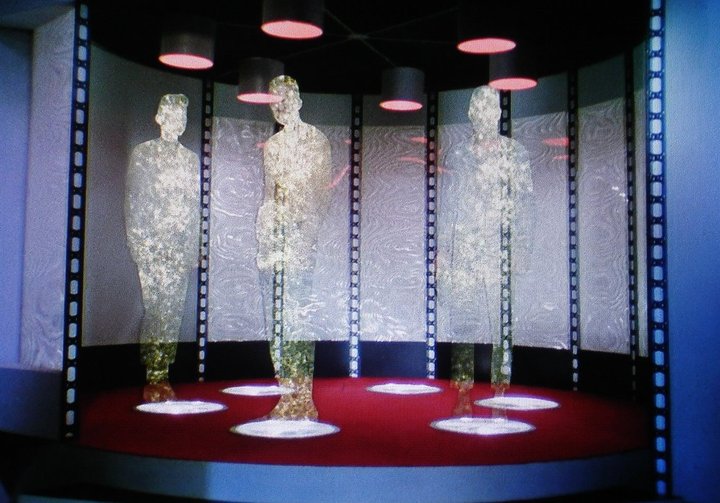The reason dualism is intuitive is that the brain does not perceive itself and so ascribes mental activity to a separate source.
— Skeptic Michael Shermer
###
Dualists, at least for the purpose of this essay, believe that our minds and/or souls are separate from our bodies (including our brains). That is, dualists believe we have non-physical minds and/or souls, independent of our material selves.
And why not? The late (awesome!) psychologist Julian Jaynes posed the problem in his idiosyncratic prose-poetry:
The yearning for certainty which grails the scientist, the aching beauty which harasses the artist, the sweet thorn of justice which fierces the rebel from the eases of life, or the thrill of exultation with which we hear of true acts of that now difficult virtue of courage, of cheerful endurance of hopeless suffering: are these really derivable from matter?
Um, actually, yes (as Jaynes agreed).

Are you a dualist? If you’re not sure, try this thought experiment: they’ve perfected teletransporters, just like in Star Trek. (Strictly a thought experiment. In addition to matchless energy requirements and problems of the seamless acquisition/retrieval of information, Heisenberg uncertainty guarantees our inability to specify both the position and velocity of an elementary particle.)
So you walk into a booth in downtown Eureka, press a button, and your body is scanned down to every last bit of information before disappearing and reappearing, perfectly complete, in a similar booth in, say, Rio de Janeiro.
Would you do it? (Being a thought experiment, you can assume it’s perfectly safe and reversible.) A dualist hesitates: Sure, I trust that my body and brain will emerge intact and unchanged. But what about me? My essence-soul-consciousness? What will happen to that? A non-dualist, convinced that nothing of her/himself is left behind, pushes the button, thinking: Everything there is of me is material. There’s nothing else to be transported, so what’s the problem?
In Descartes’ Baby, psychologist Paul Bloom makes a pretty good case that children are innate dualists. In one experiment, for instance, most young children believed that a storybook mouse, after being eaten by an alligator, would continue to have feelings and desires.
Later on in life, most of us simply skate over the dualism issue. Our language, for instance, is thoroughly dualistic: “My brain hasn’t woken up yet!” (whose brain?); “I’ve changed my mind!” (who changed what?); “I’m in two minds about this!” (yike!). My body, my head, my thoughts, my mind, my soul, my consciousness, they all speak to some inner entity. (Leading to the infinite regression problem: My inner self presumably has a yet innerer self, ad infinitum…)
When I’m not philosophizing, though, I can cheerfully and unquestioningly watch movies and TV stories in which minds and bodies are switched. Jim Kirk’s body was once taken over by a villain who took control of the Enterprise; in Anne Rice’s Tale of a Body Thief, a vampire and human swap bodies for a day; Shrek 2 has an ogre transformed into a human and a donkey transformed into a sleek steed. The fact that we can even talk about switching brains from one body to another encourages our ‘mind-as-one-thing-body-as-another’ thinking. (Some wag noted that a brain transplant is the one transplant procedure where it’s better to be the donor than recipient.) Perhaps it’s not that we totally buy these body-switching plots, rather it’s that we don’t find them completely loony.
And every time I use such innocuous phrases as my brain or I really let myself down, I rarely pause, even though my choice of words reinforces this innate dualist instinct.
And once I’ve accepted dualism (or rather, I don’t reconsider my childhood belief), it’s a short step to believing in an afterlife, where ‘I,’ that is “my soul,” survives, destined for heaven, hell, another body, somewhere where I’m something: anything except nothing.
After Paul Bloom summarized his ideas in Atlantic some years back, a reader responded (I’m paraphrasing): You don’t need to speculate about dualism to understand why most people believe in an afterlife. Way back when, some tiny minority of humans began to speculate about an afterlife, so they began burying their dead to ensure that the dearly departed would arrive in the next realm relatively intact, so to speak. Burial was so much more sanitary than having disease-ridden corpses lying around, giving the “burial” group a survival advantage over the folks in the next cave who came down with all sorts of illnesses when one of their number snuffed it and was left unburied. So, the (hygienic) disease-free afterlife-believers flourished at the expense of their moldy parasitic cousins.
Flourished, reproduced, survived…and tens of thousands of years later, here we are: natural-born dualists!
CLICK TO MANAGE